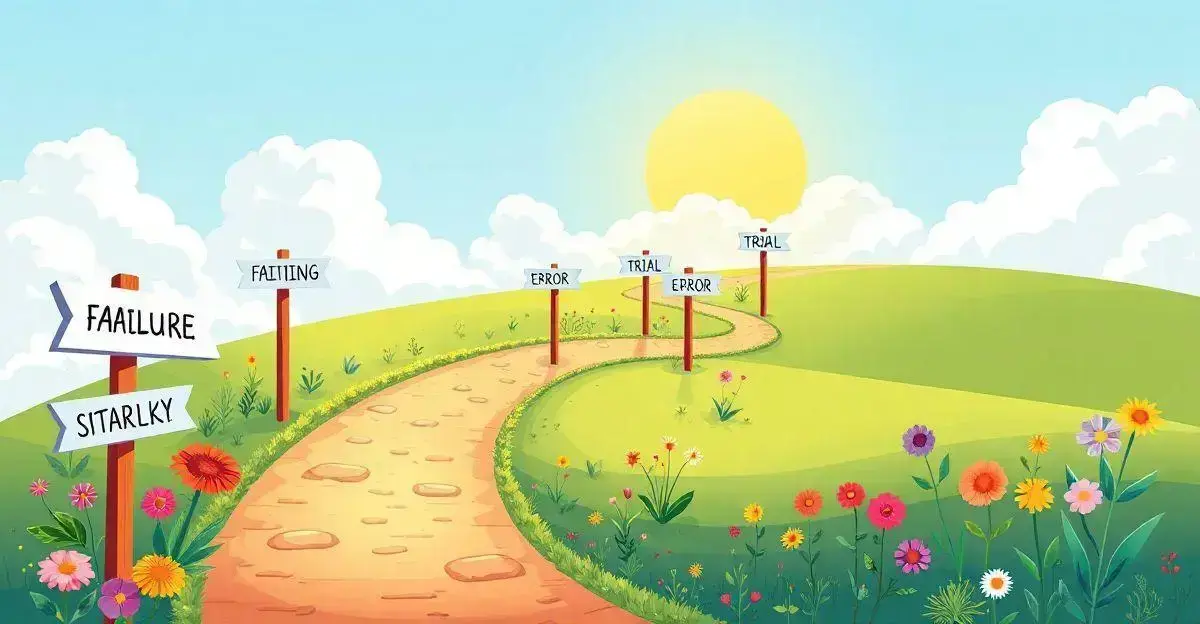The habits of a successful middle school musician are key to their growth and improvement. Developing consistent routines helps young musicians sharpen their skills and build confidence over time. Establishing these habits early on can set the stage for a lifetime of musical success.
Discipline and regular practice are essential for mastering instruments and techniques. Setting clear goals and maintaining a steady practice schedule not only enhance musical abilities but also foster valuable life skills. The journey to success in music requires both dedication and a positive mindset.
Curious about the specific practices that help musicians excel? Continue reading to discover how you can apply these habits to achieve musical greatness.
The Importance of Discipline for Young Musicians
Discipline is a crucial quality for young musicians aiming to improve their skills and achieve success. It involves setting a regular practice schedule and sticking to it, even when motivation wanes. Practicing consistently not only builds muscle memory but also helps in mastering complex pieces and techniques.
For many successful musicians, discipline is key to performing well. Creating a peaceful and dedicated space for practice can enhance focus and productivity. It is essential to minimize distractions so that practice time is effective. The habits of a successful middle school musician often include a commitment to these disciplined practices.
Additionally, discipline inculcates a sense of responsibility. When young musicians prioritize their commitments to practice, they learn valuable life skills such as time management and goal setting. These skills will serve them well beyond their musical endeavors.
Incorporating short practice sessions throughout the day can also be helpful. Instead of long, arduous hours, focusing on shorter intervals with specific goals can make practice feel more achievable and rewarding.
Ultimately, establishing strong discipline helps young musicians build confidence in their abilities and prepares them for future challenges in their musical journey.
Daily Practice Routines: What Works Best?

Establishing a daily practice routine is vital for musicians who want to excel. Consistency is key, as practicing a little every day can be much more effective than cramming all at once. This approach not only helps in developing muscle memory but also builds confidence in performing.
The habits of a successful middle school musician often involve creating such consistent routines.
When creating a practice schedule, consider setting aside dedicated time each day. This helps to form a habit, making practice a natural part of a musician’s day. It is also helpful to vary the activities during practice sessions. Mixing scales, sight-reading, and playing pieces can keep the experience fresh and engaging.
Additionally, incorporating short breaks into practice sessions is essential. Taking a moment to rest allows the brain to process what has been learned and prevents burnout. A good rule of thumb is to practice for 25 minutes and then take a 5-minute break.
Another effective strategy is to set measurable goals. Whether it’s mastering a specific piece or improving a technique, having clear objectives helps keep a young musician motivated. Reflecting on progress regularly can foster a sense of achievement.
Finally, consider involving a teacher or mentor in the practice routine. They can offer guidance, feedback, and help track progress. Having someone to share the journey with makes practice more enjoyable and can lead to quicker improvements.
Setting Goals: Short-term vs. Long-term
When setting goals, it is crucial to make them SMART: Specific, Measurable, Achievable, Relevant, and Time-bound. This framework helps ensure that goals are clear and attainable. For example, instead of saying, ‘I want to get better at music,’ a SMART goal would be, ‘I want to play my current piece flawlessly by Friday.’
Regularly reviewing and adjusting goals can also enhance motivation. As musicians improve, it is essential to reassess their objectives. This helps keep practice sessions relevant and aligned with their growing skills and aspirations.
Furthermore, celebrating achievements, no matter how small, can boost self-confidence and encourage continued progress. Young musicians should take time to recognize their efforts when they achieve a goal, as this creates a positive reinforcement cycle.
Involving a teacher or mentor in the goal-setting process can provide additional insight and support, enabling young musicians to stay on track and discover new opportunities for growth.
Learning from Mistakes: A Key to Growth

Learning from mistakes is crucial for growth as a musician. Every performer encounters challenges, whether it’s hitting the wrong note or struggling with timing.
Instead of feeling discouraged, young musicians should view mistakes as opportunities for improvement. The habits of a successful middle school musician often include embracing mistakes as learning moments.
When a mistake happens, it’s important to analyze what went wrong. This reflection helps to understand the problem and find ways to correct it. For instance, if a specific passage is difficult to play, breaking it down into smaller sections may help. Practicing slowly can also build confidence and accuracy.
Moreover, sharing experiences with peers or mentors can be beneficial. Discussing struggles often reveals that everyone makes mistakes, normalizing the experience and fostering a supportive learning environment. Learning together can provide new insights and solutions.
Finally, keeping a practice journal to track mistakes and strategies for improvement can be very effective. Writing about these experiences offers clarity and shows progress over time. Each mistake conquered becomes a stepping stone to greater skills and confidence.
The Role of Supportive Environments
A supportive environment plays a vital role in the success of young musicians. Surrounding oneself with encouraging individuals, such as family, friends, and teachers, fosters a positive atmosphere for learning and growth. The habits of a successful middle school musician often include seeking out support and guidance from those around them.
When musicians feel supported, they are more likely to take risks and explore their abilities. Additionally, joining music groups or ensembles can provide a sense of community. Collaborating with peers not only enhances musical skills but also builds social connections.
It encourages teamwork and develops important communication skills that are beneficial both in music and beyond. A supportive environment also includes access to resources. Having the right tools such as instruments, music sheets, and learning materials impacts a musician’s growth.
Engaging with mentors or instructors who offer constructive feedback can significantly enhance learning experiences. Moreover, celebrating achievements, no matter how small, reinforces a positive experience in music.
Acknowledging progress helps maintain motivation and boosts self-confidence. Young musicians should be reminded that it’s okay to make mistakes and that every step taken is part of their growth journey.
Participation in Music Activities and Competitions

Participation in music activities and competitions is essential for young musicians. Engaging in these events helps develop performance skills and boosts confidence.
These opportunities allow musicians to showcase their talents in front of an audience, which can be both exciting and nerve-wracking. The habits of a successful middle school musician often involve taking part in such events to gain valuable experience and grow as performers.
Competitions often provide valuable feedback from judges. This feedback can highlight areas for improvement and motivate young musicians to work harder. Whether they win or not, the experience gained from competing is tremendously beneficial.
Joining music ensembles, like bands, orchestras, or choirs, encourages teamwork and collaboration. These group settings teach musicians how to listen to others, blend their sound, and contribute to a collective performance. Working with peers can also make practicing more enjoyable and less isolating.
Furthermore, participating in workshops and masterclasses allows young musicians to learn from experienced professionals. These learning experiences can offer new techniques and insights that help them grow as artists.
Overall, involvement in music activities and competitions drives motivation, develops skills, and builds a sense of community among young musicians.
Balancing School, Practice, and Social Life
Balancing school, practice, and social life is crucial for young musicians. With homework, classes, and extracurricular activities, it can be challenging to find time for music practice. Proper time management is key to achieving a harmonious balance.
The habits of a successful middle school musician often involve managing time effectively to ensure all responsibilities are met without sacrificing musical growth.
One effective strategy is to create a daily schedule that includes specific time blocks for schoolwork, practice, and social activities. When musicians plan their day, they can set aside dedicated time for each task. This approach helps prevent procrastination and ensures that music practice does not fall by the wayside.
Involving friends and family in musical activities can also help maintain that balance. Inviting friends to a practice session or a casual jam can turn practice time into a fun social event. This allows musicians to enjoy their passion while still engaging with peers.
Furthermore, it’s important to prioritize tasks. When faced with deadlines, young musicians should focus on completing school assignments before diving into practice. This practice of prioritization will reduce stress and improve overall productivity.
Finally, taking breaks is essential. Short breaks between practice sessions can help refresh the mind and maintain enthusiasm for music. Ensuring there is time for relaxation and fun is just as crucial as maintaining a practice routine.
Continuing Education: Resources for Aspiring Musicians

Continuing education is crucial for aspiring musicians to stay updated on new techniques and trends in the music world. Here are some valuable resources for continuing education:
- Online Courses: Platforms like Coursera and Udemy offer a range of music courses from instrument lessons to music theory;
- Libraries and Music Schools: These provide access to books and materials that enhance learning, encouraging students to explore different genres and styles;
- Workshops and Masterclasses: These events allow musicians to learn directly from experienced professionals for skill enhancement;
- Networking: Joining music groups supports shared experiences and valuable tips for further learning;
- Continuous growth is essential for musicianship, and staying curious and open-minded is key.
Habits of a Successful Middle School Musician: Final Considerations
Embracing the habits of a successful middle school musician can lead to incredible growth and development. By cultivating discipline, setting clear goals, and learning from mistakes, young musicians can create a strong foundation for their musical journey.
Participating in music activities and competitions provides invaluable experience while also fostering camaraderie and support among peers. It is equally important to find balance in school, practice, and social life to maintain motivation and enjoyment in music.
Moreover, taking advantage of available continuing education resources empowers musicians to further their skills and knowledge, ensuring they stay ahead in a competitive field.
Ultimately, with dedication and the right mindset, aspiring musicians can realize their dreams and make a significant impact in the world of music.